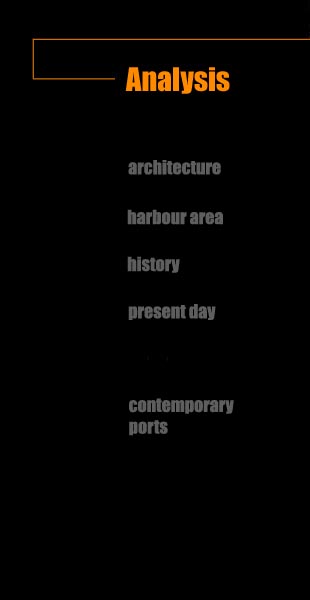
About the task and the site
Our area to be designed is a former port / dockyard area at the centre of Liverpool, situated between the very core of the city and the Mersey River meeting the sea. The harbour functions have closed down and at the moment the area is for its most part empty. The Kings' Dock is occupied by old storage houses, now including the Tate Gallery and the Beatles Museum, for example. Some random housing and hotel projects have taken place, apparently without any general plan. A large part of the area is currently used as parking space for cars. Still, the riverfront has immense potentials because of its situation at the city centre and by the fine scenery over the river.
Unlike
Manchester, Liverpool has never been an important industrial city, but
more of a harbor and commerce centre. This fact has in great extent guided
also the planning of the former port area, even if the port activities
have now become more modest or thay have been moved to other locations.
The most critical aspects in the design process were the spatial characteristics of the design, its connection to the surroundings and its social contribution. Because the area is located between the existing city centre and river Mersey, the task has included a difficult task of connecting the area to the city, as well as deciding upon the character of the new frontline. Adjacent to our area there are The Three Graces, three magnificient buildings reminding of the glorious past of this "second city of the Empire". The heterogenous block and building types now existing on the site have been challenging, as well as the stagnated economical situation now evident in Liverpool.
No strict program was given beforehand, thus convincing programming became a crucial aspect of the task. Combining new amenities with architecturally interesting new typologies - simultaneously taking into account the site - has been realized in the best student works. Big thanks belong to all of the students of this exciting, adventurous course! We are especially grateful to prof. David Dunster from the Liverpool University.